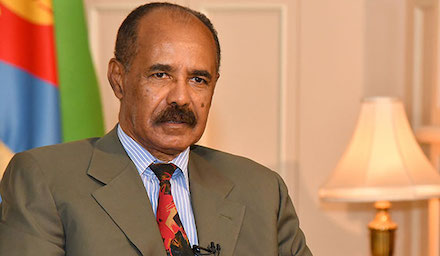Eritrean president Isaias Afwerki. Photo: Wikimedia Commons
The mass killings on 28 and 29 November may amount to a crime against humanity, Amnesty International says in a report. An eyewitness told the BBC how bodies remained unburied on the streets for days, with many being eaten by hyenas.
Eritrea’s Information Minister Yemane G Meskel has dismissed the accusations as “preposterous” and “fabricated”. In a tweet, he suggested that the eyewitnesses quoted were militiamen allied to Tigray’s former ruling party, the TPLF, whose dispute with Ethiopia’s federal government led to the conflict in the region.
Ethiopia’s government has promised a joint investigation with international actors. While it cast questions on Amnesty’s methodology, it admitted “serious issues that should be of great concern” were raised. Both Ethiopia and Eritrea deny that Eritrean forces have been involved in the Tigray conflict.
The conflict erupted on 4 November 2020 when Ethiopia’s government launched an offensive to oust the TPLF after its fighters captured federal military bases in Tigray. Ethiopia’s Prime Minister Abiy Ahmed, a Nobel Peace Prize winner, told parliament on 30 November that “not a single civilian was killed” during the operation.
But witnesses have recounted how on that day they began burying some of the bodies of unarmed civilians killed by Eritrean soldiers – many of them boys and men shot on the streets or during house-to-house raids. Amnesty’s report has high-resolution satellite imagery from 13 December showing disturbed earth consistent with recent graves at two churches in Aksum, an ancient city considered sacred by Ethiopia’s Orthodox Christians.
A communications blackout and restricted access to Tigray has meant reports of what has gone on in the conflict have been slow to emerge. In Aksum, electricity and phone networks reportedly stopped working on the first day of the conflict.
For the rest of the story please see the BBC







